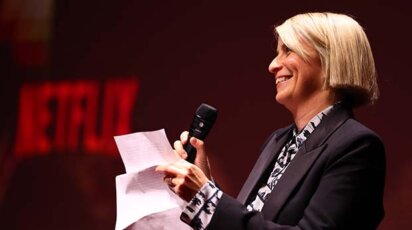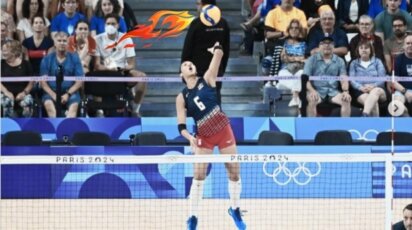News
NCAA Woman of the Year Finalist Kristen Palmer ’19
Kristen Palmer ’19 is an unstoppable force in the world of fencing and computer science. We are so proud to see her name appear as an NCAA Woman of the Year Finalist. What’s her formula for success? We recently had the opportunity to catch up with her. A graduate of MIT’s Class of 2023, Kristen is currently a software engineer at Google. Beyond her accomplishments, it is her spirit of gratitude, generosity, and genuine camaraderie that makes her a model for all our students. If you walk the grounds of Poly, there are many faculty and staff who smile and nod at the mention of her name. Today, my conversation with Kristen showcases the perspective of a bright, young leader who has only just begun to leave her mark on the world.
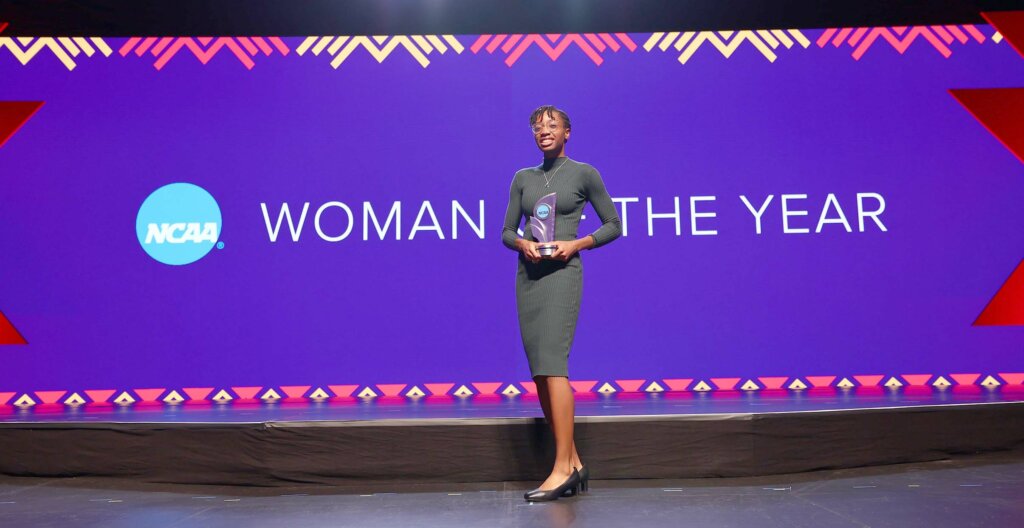
Amanda Volel (AV) interviewed Kristen Palmer ’19 (KP) on Tuesday, January 30, 2024 via Zoom.
On Fencing
AV: When did you first become interested in fencing?
KP: The inspiring force for me was my mom. My godsister was actually in the fencing program [first], and my mom enrolled me and my brother in the program later. I think for a lot of people it’s pretty easy to grow a passion for fencing, because it’s a fun thing to do. When I started, I definitely wasn’t planning to become a student athlete.
AV: Is there something that made you choose fencing over other sports?
KP: I thought it was really fun, and the people in my fencing club inspired me and cared a lot about me, which made me want to stay even more. Aside from fencing, I also liked track and field. But I think fencing just opened up a lot of opportunities for me, and I got to meet a lot of really cool people. So that’s why I leaned more in that direction.
“If you spend enough time on something, you’ll become an expert. That was my philosophy for getting good at anything.”
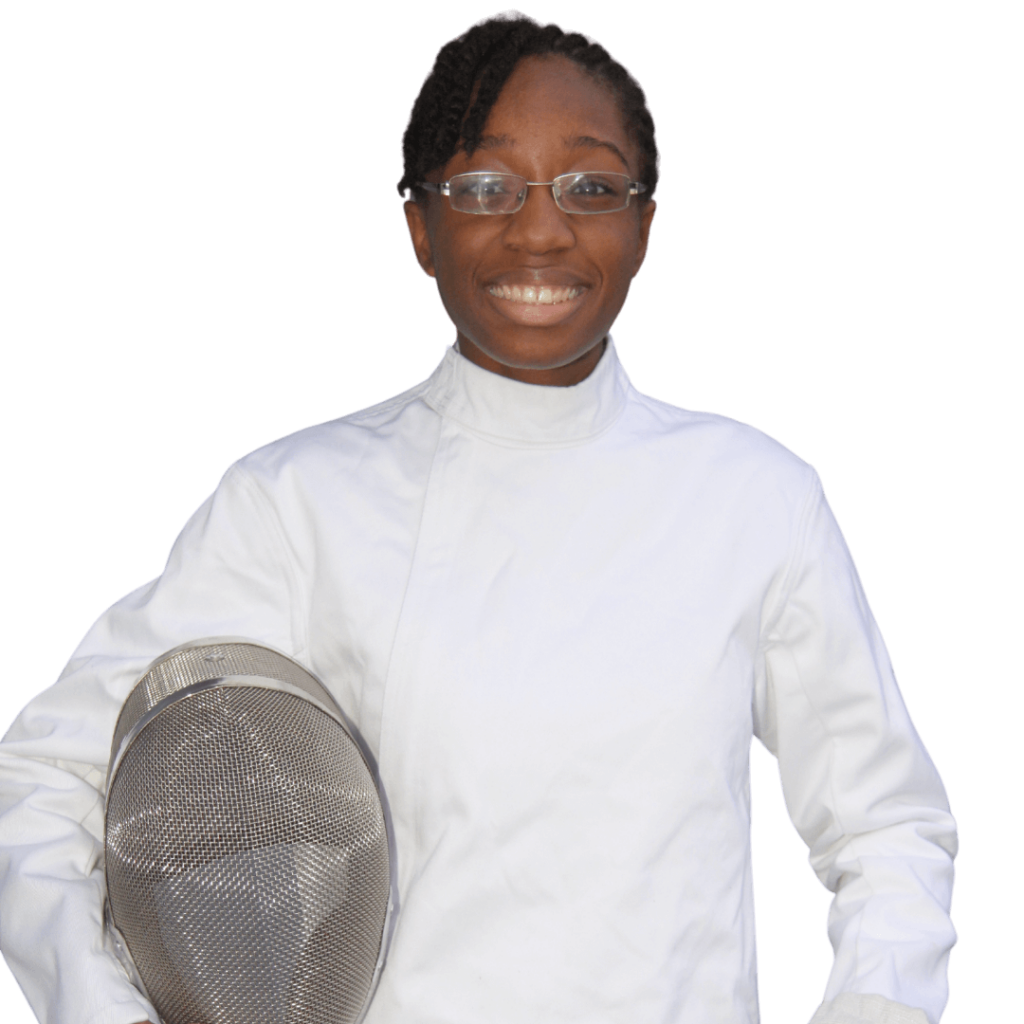
AV: You are a two-time Northeast Fencing Conference Sabre All-Star first-team honoree, earning conference Fencer of the Year and 2020 Rookie of the Year and was named your team’s Most Valuable Player the same year, can you talk about this evolution from beginner to MVP?
KP: It’s a matter of having a supportive network, and sacrificing a lot of time. When I was at Poly, I took the bus into Manhattan three times a week to practice fencing. I wouldn’t get home until around 9 or 10:00 PM. I would often have to do my homework on the subway home to make sure I could get it finished in time. If you spend enough time on something, you’ll become an expert. That was my philosophy for getting good at anything.
I got better at fencing because I took the time to find people who were better than me. I didn’t go into practice intending to win every match, I knew when there was a large skill difference between me and the person I was fencing against. Those were usually the matches where I learned the most, and I made sure to get lots of constructive feedback afterwards.
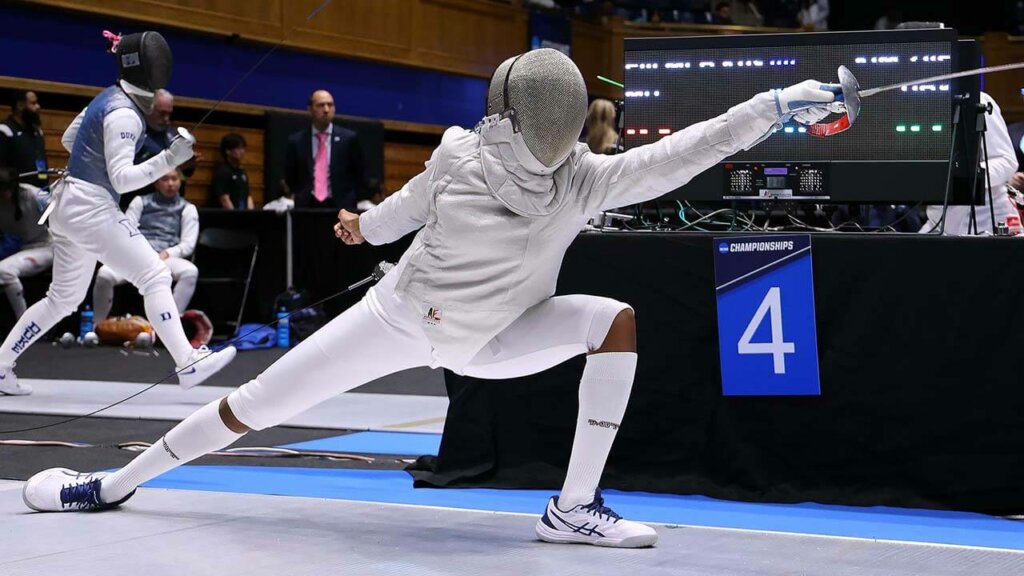
AV: I love your idea of not looking at your opponent as just a competitor, or someone that you’re in opposition with, but to recognize their strengths too; to believe that in encountering an opponent, you can learn from them. I think that is such an amazing mindset to have and one that has obviously lent itself to so much success on your part.
On Poly
AV: What stands out in your memory about your time at Poly? How did Poly prepare you for your undergraduate career/life at MIT?
KP: There are a few things that stand out about Poly, but one that I’d like to highlight is that it did a great job of exposing me to different people and a variety of sports. PE always stood out in my middle and high school experience because I had never played sports like squash before coming to Poly. I got used to trying new things, which opened doors to me later taking classes like archery, pistol, and golf at MIT. During my time at Poly, I wasn’t always very good at the sports I tried, but these experiences helped me become more comfortable with trying new things and not putting pressure on myself to be the best at everything.
It was also great to get experience working with cool equipment like laser cutters and 3D printers in Poly’s Maker Space. I used both of these machines in my research at MIT, and my prior experience at Poly made the transition much more seamless. Overall, Poly gave me a very well-rounded education.
“Overall, the teachers and the college [advisory] staff at Poly were very encouraging and pushed me to do big things.”
Mr. [Charles] Polizano P’18, who teaches computer science classes at Poly, was one of my favorite teachers. I took his classes for two or three years during high school, and he was one of my biggest advocates as I was applying to colleges. He really pushed me to do my best in computer science, and in general, because he really believed in me. Overall, the teachers and the college [advisory] staff at Poly were very encouraging and pushed me to do big things.
AV: It’s so important to be able to try new things without the pressure of being perfect at it overnight.
“…being a part of Girls Who Code gave me the confidence to know that I was going to do well in STEM and computer science, in particular. If I was stuck on something, I didn’t really worry about it. I just took those opportunities to learn and not be ashamed if I didn’t know something.”
KP: I also want to mention Girls Who Code, as one of the co-founders of the club. I’m glad that I had a supportive network of women before I headed to college. A lot of students, especially at MIT, have imposter syndrome. But being a part of Girls Who Code gave me the confidence to know that I was going to do well in STEM and computer science, in particular. If I was stuck on something, I didn’t really worry about it. I just took those opportunities to learn and not be ashamed if I didn’t know something.
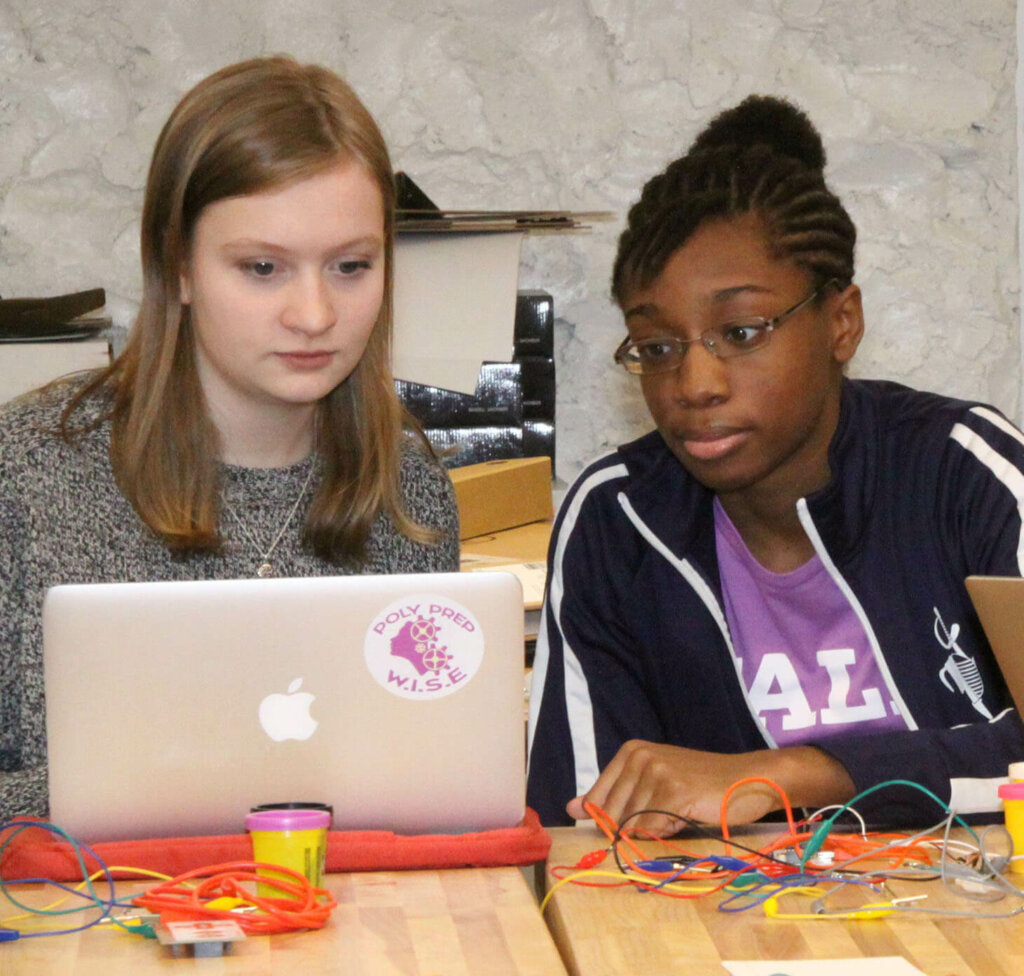
AV: Absolutely. Being able to see something start as just a small seed of an idea, to becoming a space where you bring people in and offer support is so empowering.
What are the spaces at Poly where you felt you felt your growth was tended to the most, particularly in STEM?
KP: My growth was tended to a lot in the computer science classes I took. I had the same classmates and teacher for three years, so we grew very close. It was really nice being surrounded by friends, no one shamed you if you got an answer wrong. I just felt empowered to make mistakes. Mr. Polizano was able to see us all and had an idea of what we could achieve. He gave a lot of really good advice and pushed us in projects where he felt that we could be doing more.
In Girls Who Code, Ms. [Jean] Belford similarly encouraged me and other girls in the club to pursue their passions in computer science. All of my teachers were very supportive of what I wanted to do. I would often visit the deans’ offices to get their opinions on my college essays, and they gave me lots of helpful tips to improve my writing and increase my chances of getting admitted to my dream schools. All in all, I felt very supported at Poly.
AV: Can you talk about the student-led spaces you were a part of at Poly and how this prepared you to be an active member and leader in your community at MIT?
Being a co-founder of Girls Who Code and Poly’s former fencing program taught me what it took to be a successful and inspirational leader. In both clubs, there were times when it was hard to keep people motivated to show up regularly, like during finals season. I knew people were tired and wanted to study, so telling them to come to our club meetings and disregard the other things they had to deal with would be ineffective and insensitive. Instead, I engaged with people personally, learning about their problems and working with them to come up with reasonable solutions so they would have more time to engage with the clubs they were interested in. That’s one of the most important things I learned being a leader at Poly: how to connect with people and make spaces that people would enjoy coming back to.
On Mentors and Leadership
AV: How important was your identity in seeking positions of student leadership in MIT and/or at Poly?
KP: My identity is always going to be a part of the equation, I can’t separate myself from it. However, I don’t think it was ever a driving force as to why I sought leadership positions. I just became a leader in the activities I personally gravitated towards. I figured that if I was going to spend a significant amount of time in a group, I should at least take on a position of leadership so that I could have a say in what its future would look like. That was always the most important thing to me. With all the experience I had from Poly and beyond, I was confident enough that I could do good things as a leader. I didn’t really let anything stop me.
AV: Who have been your mentors at Poly that demonstrated a path forward in STEM and/or athletics? Anyone outside of Poly that you would like to mention?
KP: If they’re reading this, they’ll probably be tired of seeing their names mentioned so often, but I would have to say Mr. Polizano and Ms. Belford. They inspired me to pursue my passion for computer science, and I deeply appreciate their support. There were also my former Poly fencing coaches, Mr. [Runako] Taylor and Mr. [Doug] Wong.
Outside of Poly, I am a part of the Peter Westbrook Foundation. Peter is an inspiration for me and all of my teammates. He is one of the first Black people to excel in fencing, a six-time Olympian, and a 13-time US national champion. In terms of other mentors, everybody at that club, like my coach and all the older fencers, were always looking out for me. My next door neighbor was also an MIT alum, so I always talked to him about my experiences there, and I sometimes worked with him at his startup. He gave me a lot of really good advice, and also helped me figure out what to do with my career. I have a ton of mentors! I can’t think of them all off the top of my head. But yeah, those are just a few.
“I want to be as much of a mentor as I can be to other girls, or at least be a teacher who inspires girls to say, “okay, maybe I can actually have a future in this.”
AV: I’m wondering, what started your interest in pursuing social justice in the field of computer science.
KP: I’ve only been able to get where I am now because of the people that have supported me. My friends, family, and mentors have volunteered their time, energy, and money to help me succeed. I want to make sure that other people have a similar, positive experience, especially other girls. I want to be as much of a mentor as I can be to other girls, or at least be a teacher who inspires girls to say, “okay, maybe I can actually have a future in this.”
On the Journey
Q: You’re working at Google, how has that been going?
KP: Things are going pretty well right now! I have intelligent and driven coworkers, challenging projects to tackle, and a lot of flexibility with my job. I’m also glad to be back in New York and with my family again.
AV: When you look back on your time at Poly, do you see parallels?
KP: I use some of the coding languages I learned at Poly in my day-to-day work, which I think is pretty cool. Although there’s a lot in full-time work that you can’t learn in school, I think Poly and MIT gave me a strong foundation of knowledge that prepared me well for the transition. But I think a lot of my most applicable skills were definitely learned from prior internships, because they were a better representation of what I do on a day-to-day basis.
AV: I read that you have a great interest in travel, including traveling with MIT to South Africa and Botswana, where you taught students about Machine Learning and Artificial Intelligence. You also have a minor in Chinese? Where did your interest in learning about different cultures and eventually contributing to global education first begin?
I became very passionate about traveling after being exposed to different languages and cultures at Poly. After taking Latin in middle school, I went on the Italy trip, where we learned a lot about the nation’s history. Taking Mandarin and learning about Chinese culture also made me more interested in traveling. Although I didn’t have the opportunity to visit China while at MIT, I plan to go sometime soon and have had many opportunities to use my Chinese skills. This past summer, I went on a trip around Southeast Asia with one of my friends from Poly. Although I didn’t speak the [local] languages, I was usually able to find locals who spoke Chinese. This opened a lot of doors for me, as it made it easier to get directions, get recommendations for things to do, and try new foods.
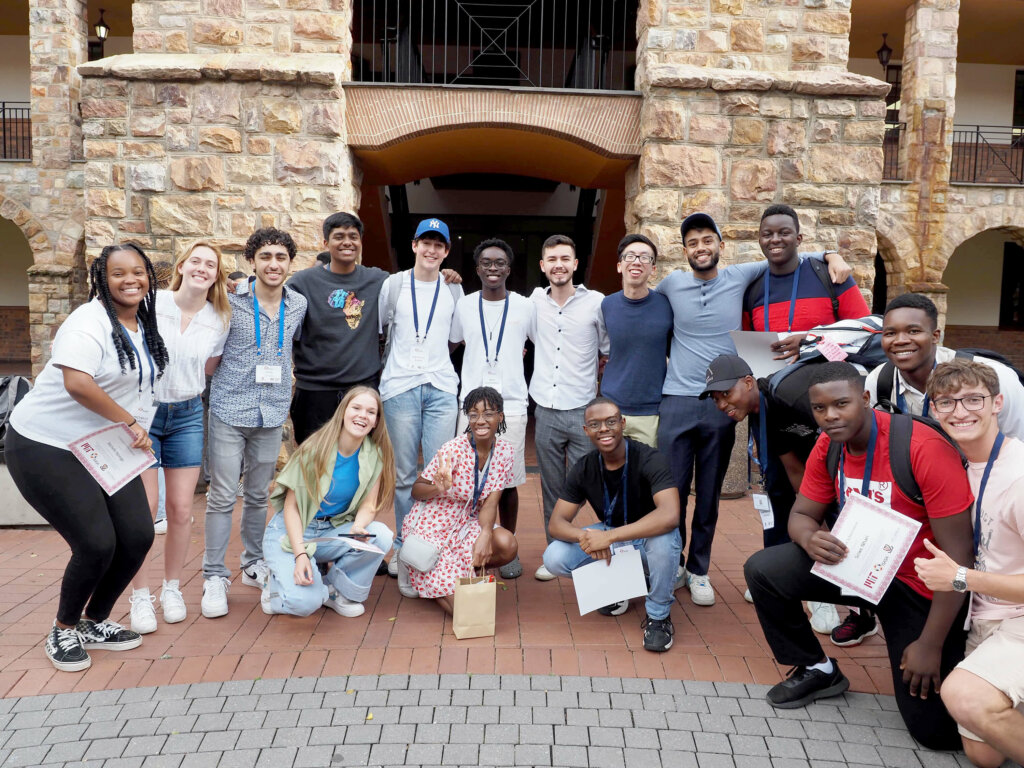
Thank you for a great conversation, Kristen. It was so inspiring to see where life has taken you so far.
Learn more about Kristen via her website.

